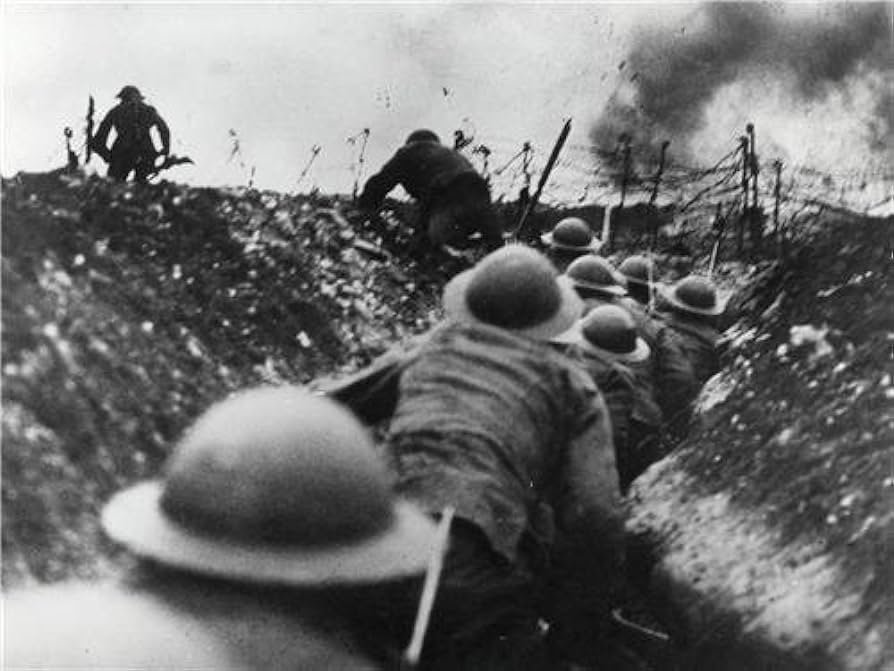The Integration of Courage and Kindness Lead to Flourishing
April 26th, 2024
Too much kindness and too much courage lead us in the wrong direction. The integration of the correct balance of courage and kindness leads to flourishing. The school motto, Gratia et Veritas, embedded in the Pacifica crest (grace and truth), expresses this integration. Ecclesiastes tells us there is a time for everything—a time for kindness (grace) and courage (truth). Christ operated in the perfect balance between both of these virtues. He delivered kindness when appropriate and acted courageously when necessary.
Each age has its sensibilities, and the pendulum tends to swing in one direction or the other. Today, West Los Angeles' culture is marked by kindness, a soft virtue. From time to time, I stop for coffee at La La Land. The motto on the employee aprons is The Kind Army. La La Land is making a statement. Kindness, a soft virtue, is essential for harmonious relationships. We deal with feelings with kindness, focus on unity, and meet others where they are. We show up in another's life. Kindness is a feel-good virtue that must be valued and delivered.

However, unchecked kindness is unloving. Kindness unchecked shows no discernment, lacks judgment, ignores reality, and seeks to affirm others regardless of what is good or true. Inappropriate delivery of kindness makes the giver feel good at the receiver's expense. It harms relationships. It harms others.
Courage, a hard virtue, is less prevalent today. It is essential to doing good. Sometimes, doing good in the face of difficulty is hard. It takes real courage. Courage takes an accurate look at reality, attempts to overcome obstacles, pursues wisdom, helps others get where they need to be, tells the truth, and provides leadership and vision. It is tough but necessary.
 C.S. Lewis and J.R. Tolkien, two of the leading Christian thinkers of the 20th century, both fought in World War I. Their lives were altered and shaped by the devastation of trench warfare they experienced. They were a few intellectuals who came out of the war attempting to reclaim hope, beauty, and the notion that evil led one to believe in goodness, theism, and God. Their peers became skeptics, materialists, and atheists. The courage that Lewis and Tolkien displayed in war and in engaging society in the postwar world was remarkable. We should reflect on this as we seek to balance courage and kindness.
C.S. Lewis and J.R. Tolkien, two of the leading Christian thinkers of the 20th century, both fought in World War I. Their lives were altered and shaped by the devastation of trench warfare they experienced. They were a few intellectuals who came out of the war attempting to reclaim hope, beauty, and the notion that evil led one to believe in goodness, theism, and God. Their peers became skeptics, materialists, and atheists. The courage that Lewis and Tolkien displayed in war and in engaging society in the postwar world was remarkable. We should reflect on this as we seek to balance courage and kindness.
Courage unchecked is dangerous. It ignores the heart of a friend, can lead to foolish consequences, is akin to a bull in a china shop, and is a manifestation of too much pride. It can destroy.
Pacifica seeks the integration of courage and kindness, of grace and truth. We have the perfect example. John 1:14 tells us that Jesus came full of grace and truth. When four friends of a paralyzed man bring him before Christ, Jesus offers what is needed. He tells the man, “Your sins are forgiven.” He deals with him honestly and truthfully, not ignoring his shortcomings. He is truthful and courageous regarding the man's sins. Then he heals the man and tells him to get up and walk. In this situation, Jesus offers both grace and truth, bringing goodness into the man's life.

Early in my Pacifica career, a student made an unfortunate decision on campus. She came to my office. It was my job to navigate through the mess. These moments are never fun. However, they are necessary and, if done well, bring life to all involved. First, I listened. Then I dealt with her mistake, telling the truth about what had happened and the harm to her and the community. I told her she was suspended from school. I was courageous and truthful. Next, I told her that I cared about her, that her teachers and friends loved her, and that when she returned to school, she would be welcomed back with open arms and that what had happened would be forgotten. There would be a clean slate, and she would be fully restored. She burst into tears, sobbing uncontrollably. After a while, she collected herself, and in the sorrow, she shared, “No one has ever said that to me. No one has ever held me accountable and told me that I was loved. I have been either allowed to do anything I wanted to do with no consequences (“grace”) or treated harshly (“truth”) with no context.” This student was experiencing the wise offering of what was needed in the situation, the integration of courage and kindness.
The integration of courage and kindness brings joy to life. Virtues are essential. At Pacifica, we live and pursue them. Today, kindness is the virtue of the day. Let’s seek a proper balance of kindness and courage so we can all think and live well.
Categories
Recent Articles
- 05/9/24Meet Jeremy Tuggy, Athletics Assistant
- 05/2/24Meet Staci Lane, Associate Athletics Director
- 04/28/24Head of School Awards 2024
- 04/26/24The Integration of Courage and Kindness Lead to Flourishing
- 04/24/24Meet Brendan Ward, Athletic Associate & Anatomy/Physiology Teacher
- 04/23/24Spring Break 2024 Reflections
10 Reasons Content Box

10 Reasons to Choose Pacifica







